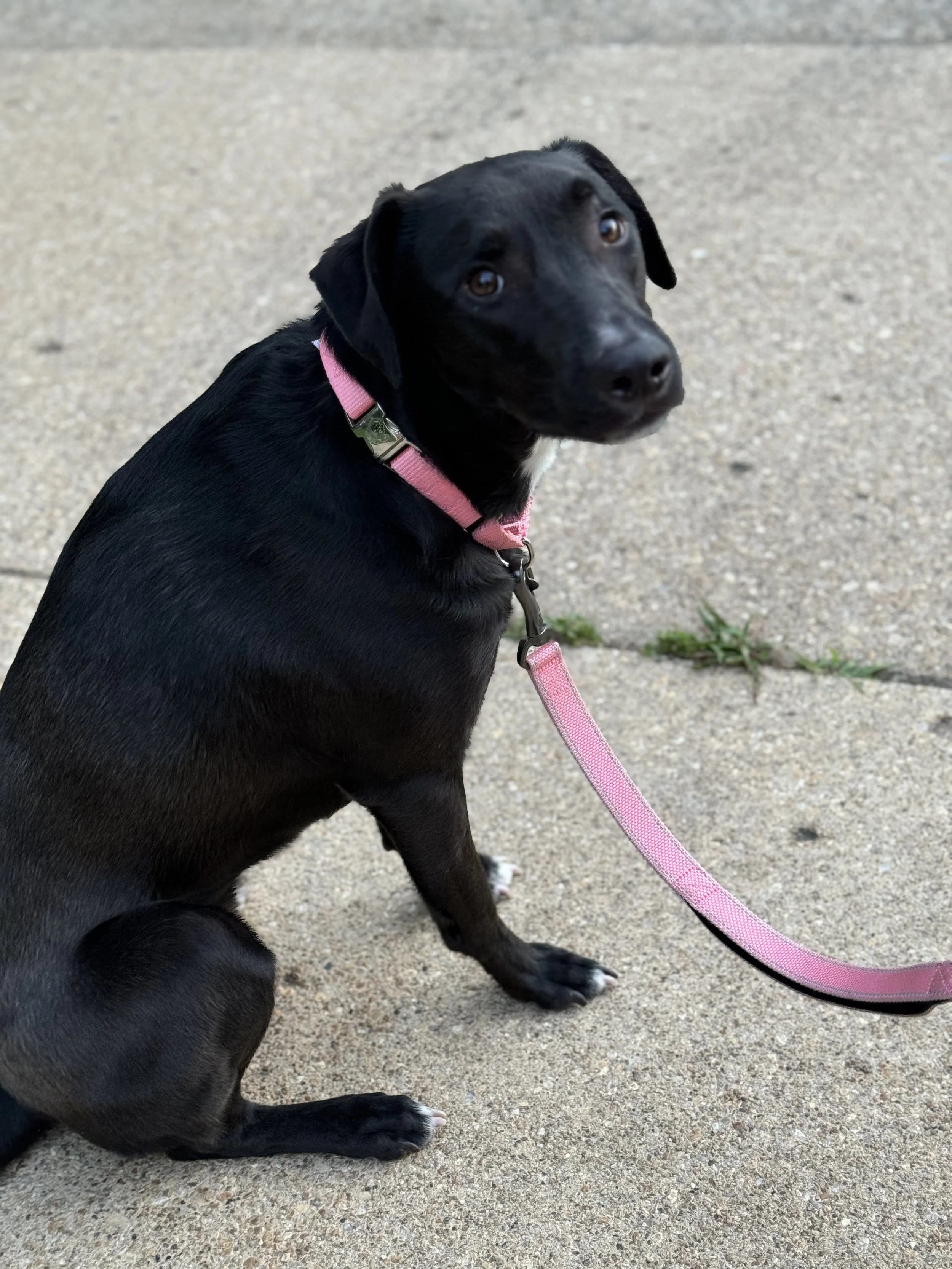Training works best when you pair clear, simple exercises with the right mindset. At Nova Pack Dog Training, we use a balanced approach that blends reward and correction, structure and freedom, and mental work and movement. Let’s dive deeper into exercises that build real-word manners, followed by key considerations that make those exercises stick.
Core Exercises That Build Reliable Behavior
Attention and eye contact
Sit quietly with your dog on a leash with a few small treats in hand
Wait for voluntary eye contact, then mark with “yes” and reward
Add duration in small steps
This boosts engagement, improves responsiveness, and becomes your “check in with me” habit in distracting places.
“Sit on the Dog” Protocol
Clip the leash to a stable point or sit on the leash with enough slack for your dog to lie down
Do not cue, do not chatter
Reward calm settling and restart if they pop up
This teaches arousal regulation and helps dogs learn how to relax around everyday life, not just during training sessions.
Loose Leash Walking and Follow the Leader
Practice short, structured walks
Keep the leash loose and avoid allowing your dog to pull or launch toward distractions
As your dog moves ahead, calmly change direction opposite to where they’re going
Use food rewards to reinforce engagement and correct heel position
Pay only when your dog is sitting close on your left side and maintaining eye contact
This reinforces attention, impulse control, and teamwork during every walk.
“Place” Training
Send your dog to a cot or mat
Reinforce staying there until released
The “place” command creates off-switch control for situations like door greetings, family meals, or deliveries and supports calmness at home.
Key Considerations That Make Training Work
Balanced Training
Progress comes from pairing rewards with fair, well-timed corrections so your dog understands both what to do and what not to do. You will want to mark and pay quickly for the correct choice. If a rule is broken, use the lightest effective interruption and reset.
Structure Before Freedom
Use crates, drag lines, and door manners to manage choices while your dog learns. Freedom is earned, so structured meal times, predictable routines, and calm entry and exit at crates and thresholds reduces overstimulation.
Consistency and Clarity
Make sure to use the same markers and cues across the household such as “yes”, “good”, “no”, and “break”. Start by keeping your criteria simple, then raise difficulty gradually.
Tools Used Correctly
From long lines to prong collars, tools communicate. Keep the leash loose until you need to make a correction, then release pressure when your dog makes the right choice.
Ready to Turn Your Pet's Exercises Into Everyday Manners?
Nova Pack Dog Training tailors in-home and board and train programs to your dog’s age, temperament, and goals. Schedule an evaluation and start building a calm, confident companion today!




